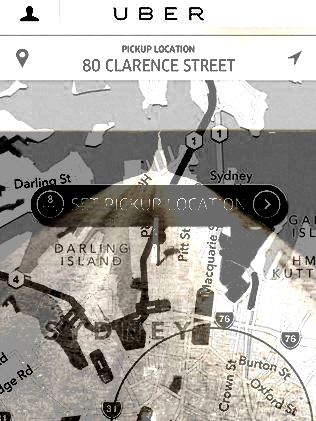Uber access expanding
 Uber has set up a Public Policy Advisory Board to help it navigate the challenges and controversy of its global expansion.
Uber has set up a Public Policy Advisory Board to help it navigate the challenges and controversy of its global expansion.
Former chair of the Australian Competition and Consumer Commission (ACCC) Allan Fels has been asked to join the board, which will meet in San Francisco for “vibrant discussions” about the myriad challenges Uber faces around the world.
Joining Mr Fels will be the former prime minister of Peru, Roberto Daniño; former US Secretary of Transportation, Ray LaHood; Princess Reema bint Bandar Al Saud of Saudi Arabia; Adil Zainulbhai, chairman of India’s Quality Council; Dr Gesner Oliveira, former president of the Brazilian Administrative Council for Economic Defense; former vice president of the European Commission, Neelie Kroes; and Melody Barnes, former director of the Domestic Policy Council at the White House.
“As ridesharing continues to grow, we look forward to the board's candid advice and insights. Of course, Uber has a reputation for getting straight to the point - sometimes a little too quickly - and we want their feedback to be equally direct,” Uber’s David Plouffe said in a statement.
“Just a few years ago only one place - California - had a regulatory framework for ridesharing. Today more than 70 jurisdictions in the US do, and many other places around the globe are following suit, including in Australia, Canada, India, the Philippines, and Mexico.”
Here in Australia, regulatory authorities are still working out what to do with the rapidly-growing ridesharing industry.
Uber drivers have recently been approved to pick passengers up from Sydney Airport’s domestic and international terminals.
It means passengers can order an UberX or UberBlack car using a virtual queue system at the terminal, just meet a pre-booked driver at the airport’s free public pick-up zones.
The company is working with the airport on its own signage and even a possible Uber designated pick-up zone.
The move has outraged the NSW Taxi Council.
“The instructions given to Uber drivers will clog car parks, increase traffic congestion, and impact on the amenity of local residents and businesses,” NSW Taxi Council chief executive Roy Wakelin-King said.
“It is beyond us as to how Uber can unilaterally announce that it has established waiting areas on land which it appears they have no consent to use.”
Ride-booking services were officially allowed to operate on New South Wales roads last December, joining the Australian Capital Territory and the South Australian government in letting ride-booking services cruise the streets, albeit with some conditions.







 Print
Print